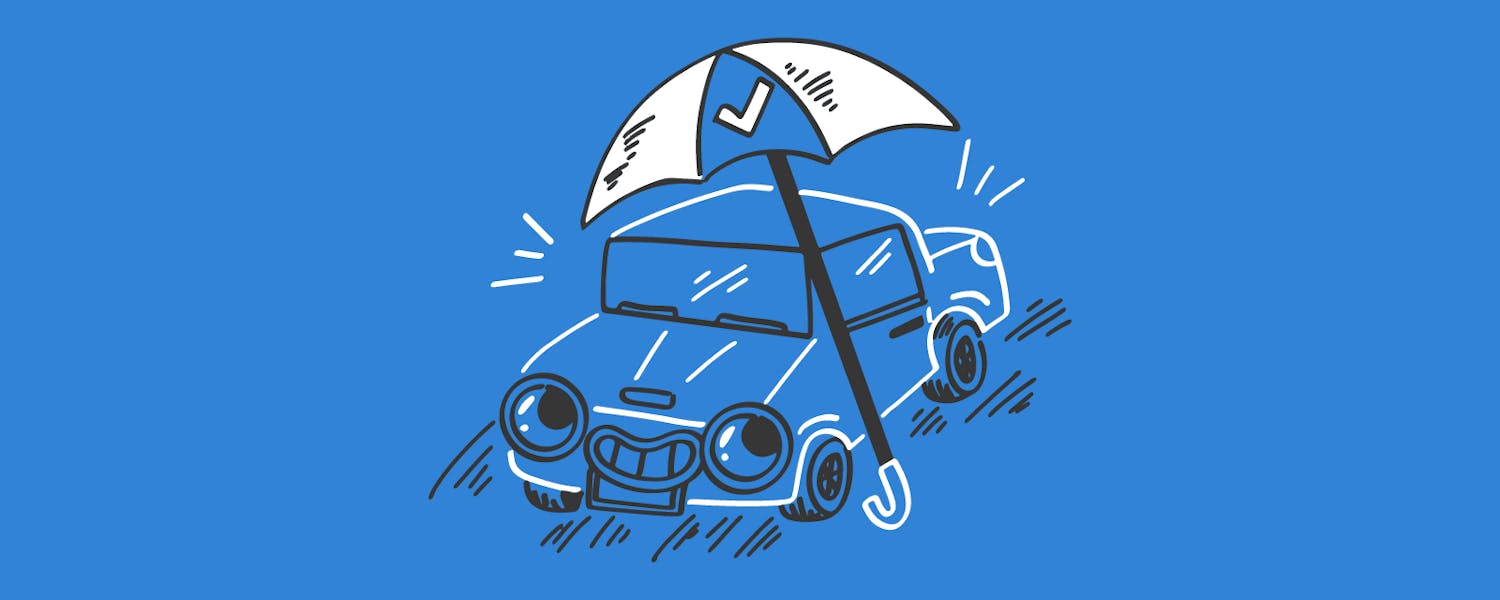The road to insure your car
Everyone driving needs car insurance – it’s the law. However, knowing the types of car insurance, what to consider before buying, and how to increase your driving score are keys to get the best insurance that fits your budget.
What is Car Insurance?
Auto insurance is coverage you purchase that protects you in an accident, vandalism, or theft. It’s a contract between you and the insurance company, which promises to cover your financial obligations should something happen to your car.
How Does Car Insurance Work?
When you buy car insurance, you pay an agreed-upon premium. You can pay it in full for the 6-month term or monthly. You pay the premiums even when everything is okay, and there aren’t any claims.
If you have an incident, such as an accident or theft, you file a claim with your insurance company. But first, you must pay your deductible. This is the amount you agreed to cover on a claim before the insurance covers the loss.
For example, if you have a $700 deductible, you pay the first $700, and the insurance company covers the rest. If they value the loss at $2,000, they pay $1,300, and you pay $700.
Depending on the car insurance chosen, it might cover the following:
- Damage to your vehicle
- Damage to another party’s vehicle and/or property
- Medical payments for you or any other parties involved
- Damage caused by an uninsured or underinsured driver
- Damage not caused by another car
What Type of Car Insurance Must You Carry?
Each state has different laws, but most require liability and bodily injury insurance. All other coverages are optional but helpful in most situations.
Here are your options:
Liability Insurance
Liability coverage ensures anyone driving a car has the financial means to pay for any damages they cause to other vehicles, property, or people. Liability insurance includes property damage coverage or damage to physical property or vehicles and bodily injury, which covers the medical cost for injuries to other drivers, passengers, or pedestrians.
The coverage amount required varies by state, but most states require $5,000 - $25,000 for liability insurance and $15,000 - $50,000 per person for bodily injury.
However, remember that you could be financially responsible for any damages beyond your coverage, so purchasing as much insurance as fits into your budget is always better to prepare for the worst-case scenario.
Comprehensive Insurance
If your car experiences damage from something other than another car, it falls under comprehensive coverage. So, for example, if your neighbor’s tree fell on your car and crushed it, your comprehensive insurance would cover it.
Like liability coverage, there is a deductible you must pay first, but then your insurance will cover the remaining cost up to your limits.
Collision Insurance
Liability insurance covers only the other cars involved in the crash, not yours. If you cause, the accident collision insurance covers the cost to repair or replace your vehicle up to your covered limits.
Medical Payments Insurance
Medical payments insurance covers you and your passengers, similar to bodily injury insurance. So, for example, if you or your passengers suffer injuries and need to go to the doctor or hospital, your medical payments insurance would cover the cost.
Uninsured/Underinsured Coverage
Uninsured/underinsured insurance covers you during an accident you didn’t cause, but the person who did either doesn’t have enough liability insurance or has no insurance. The insurance may cover damage to your car or bodily damage to you or your passengers.
What Affects Car Insurance Prices?
Your car insurance premiums depend on many factors, some of which you can control, including the following:
The Type of Car you Drive
Some cars cost more to insure than others. For example, if you drive a commonly stolen vehicle or a vehicle that’s more expensive to repair than most, you’ll pay higher premiums.
Driving Record
A clean driving record ensures you’ll pay lower premiums than if you have a bad record. Tickets and accidents increase your premiums, and an insurance company may drop you if you have too many issues.
How Frequently you Drive
Insurance companies ask where you drive and how often. For example, if you commute 50 miles a day, you’ll pay more than someone that doesn’t commute. Insurance companies base your premiums on the risk of insuring you. So the more you drive, the higher the chances of something happening.
Your Age and Experience
The older you get, the lower your premiums get because you have more experience driving. New drivers, for example, pay high premiums, but once they hit 21 – 25 years old, the premiums decrease.
What Happens if you Drive Without Car Insurance?
Each state has different laws regarding what happens if you drive without car insurance. Most charge a hefty penalty, and some suspend your license for not following the law.
Most importantly, if you cause an accident and don’t have insurance, you’re financially responsible for the damages to the car(s) and people. If you can pay for the damages, they can sue you for the cost plus any pain and suffering.
Should you Sign up for a Driving App?
Many insurance companies offer a driving app with a device installed in your car. The device monitors your driving habits, including speed, braking habits, and other factors affecting your insurance premiums.
Most insurance companies offer discounts for drivers who opt into their driving app program. If your insurance company doesn’t offer one, you can download an app like DriveScore and get personalized suggestions for better driving habits to decrease your insurance premiums.
Final Thoughts
You can’t drive without car insurance, but that doesn’t mean it should cause you to exceed your budget. Consider all the ways to decrease your premiums yet keep the coverage you need to protect yourself.
One of the worst financial decisions you can make is driving without insurance, because getting caught without it can lead to financial destruction. So instead, find the insurance you can afford, and protect yourself and others on the road.





